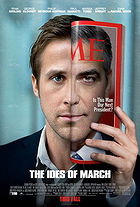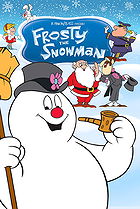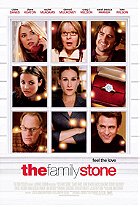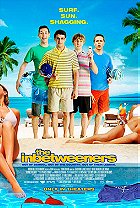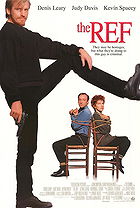Vehemently a '50s musical, White Christmas is one of those perennial Christmas favourites that's gratuitously aired by TV stations across the world for annual Yuletide viewing. And why not? It's such an esteemed seasonal film because it's a completely harmless, inoffensive, sweet-natured and charming illustration of the un-cynical filmmaking mindset of yesteryear. All of the characters are jolly, there's no profanity, and romance doesn't give way to exploitative sex scenes. Yes, it's very idealistic, sentimental and treacly, and its plot is simplistic, but it's nevertheless a warm feel-good movie drenched in charm. Sometimes it's refreshing to immerse yourself in an inoffensive bath of good feeling and terrific song & dance numbers.

After WWII comes to an end, army buddies Bob (Crosby) and Phil (Kaye) form a successful two-man show, and subsequently enjoy fame and fortune as highly sought-after entertainers. The pair begin to grow weary of one another, though, and Phil becomes convinced that Bob needs a wife. When they meet sister performers Betty (Clooney) and Judy (Vera-Allen), Phil senses an opportunity for Bob to find love. Thus, Phil attaches both himself and Bob to the sisters by any means necessary, and the quartet end up in Vermont. Upon arriving at the local inn, Bob and Phil are stunned to find out that the proprietor is their beloved former general (Jagger). Unfortunately, their old general is in bad shape: he's fallen on hard financial times, with the military no longer wanting him and with lack of snow in Vermont limiting his profits. Wanting to help any way they can, Bob and Phil hatch a plan with the girls to save the inn by putting on a Christmas Eve show and inviting the members of their former platoon.
In order to enjoy the film, you'll need to be able to accept a great deal of contrivances and some TV sitcom-level conflict. For instance, Betty wrongly suspects that Bob's plan to help the general is more about self-promotion. One of the general's employees makes this deduction, but abruptly forgets all about it by the next scene. Added to this, White Christmas is incredibly corny; in fact it has enough corn to put most farms to shame. Taken as feel-good family fun, though, the film succeeds marvellously. It even delivers a heart-warming message about the value of family and friends, and the merit of selfless deeds for the sake of others. The way the characters become determined to help their former commanding officer in his time of need (despite the fact that the war is over) is uplifting and poignant. The Christmastime setting is not necessarily pivotal to the plot, but it works to reinforce the picture's underlying themes.

White Christmas was conceived as a pseudo-sequel to 1942's Holiday Inn, hence it was primarily constructed to incorporate as many Irving Belin tunes as possible. Expectedly, Bing Crosby's White Christmas song is the material's backbone, but the screenplay by Norman Krasna, Melvin Frank and Norman Panama allows the flick to be more than just a song vehicle. The script is full of intelligent, razor-sharp, witty dialogue, and there's a real sense of camaraderie between the main characters. Best of all, a lot of humour is scattered throughout this sentimental tale. White Christmas is also an attractive picture, with colourful production design and costumes making it a terrific feast for the eyes from start to finish. This was the first film to be produced in VistaVision; a process which yields a far more attractive, sharper image. The results are magnificent. Another benefit is Michael Curtiz's energetic direction. Curtiz has a gift for pacing as seen in films like The Adventures of Robin Hood and Casablanca, making him perfect for such an extravagant musical. Bob Fosse's musical numbers are often enjoyable, too. On top of the obvious title song, White Christmas contains a handful of additional tunes, including Sisters (which is at one stage hilariously performed by Crosby and Kaye), The Best Things Happen When You're Dancing, and Snow, among others.
The performances are solid from top to bottom. As well as being a competent singer, Bing Crosby is a strong thespian, playing the role of Bob with sincerity and charisma. Danny Kaye is equally charming as Phil, mixing genuine singing expertise with acting talent. Both Crosby and Kaye have a gift for comedy, and they share great chemistry. Meanwhile, both Rosemary Clooney and Vera-Ellen are great companions for the boys. Interestingly, Vera-Allen couldn't sing and Clooney couldn't dance. Thus, Vera-Allen's singing was mostly dubbed by Trudy Stevens. They couldn't exactly dub Clooney's dancing, but director Curtiz admirably dealt with the problem, and the girls' performance drawbacks are never obvious. The acting standout of White Christmas is Dean Jagger as Major General Waverly; his performance is the most nuanced in the film. When the plan to help the general comes to fruition, the raw emotion on Jagger's face is extremely affecting and believable.

The highest-grossing film of 1954, White Christmas is one of the most quintessential Christmas movies that's not necessarily about the festive season. But while the holiday is merely a backdrop, the spirit of Christmas permeates the picture. With its plethora of heart, comedy and catchy songs, the film overcomes its syrupy overtones and contrived nature, making it perfect for family consumption. They really don't make movies like this anymore.
8.0/10
 Login
Login
 Home
Home 183 Lists
183 Lists 1669 Reviews
1669 Reviews Collections
Collections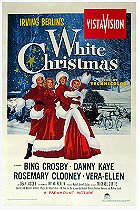
 0 comments,
0 comments, 



